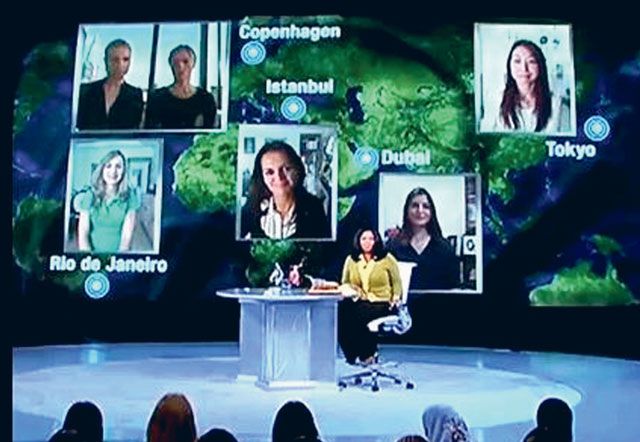Dubai: Views on Emirati culture and lifestyle aired by a Dubai-based doctor on American talk show Oprah have sparked a controversy among Emiratis who have said they are not representative of the UAE.
Dr Lamees Hamdan, who appeared on the Oprah Winfrey show earlier this month, aired personal views on Oprah that made her the subject of an internet debate among Emiratis that has turned into a personal campaign in some cases.
A number of Emiratis have taken offence to her claims that the abaya [black full-body outer layer of clothing] and shaila [loose veil, partly covering the head] are "cultural" and not religious, and that Emiratis do not pay utility bills. However, a group of supporters among Emiratis and expatriates has also emerged, defending her right to speak her mind.
A number of Arabic language internet forums have harshly attacked her for her statements, with some resorting to personal attacks. Others attacked Winfrey for being "anti-Arab" and "anti-Muslim".
American audience
Lamees did not however refer to the hijab in the Oprah segment, which is a full head covering that most Muslims consider to be obligatory for women. The shaila she spoke of refers to a scarf that is often worn loosely on the head, leaving the top exposed.
She declined Gulf News' request for an interview but earlier told Dubai-based Emarat Al Youm that her comments were intended for an American audience "that had misconceptions about the Arab way of life", and stood by her views on the shaila.
A twitter user, elzubeir, defended Lamees as an intelligent and articulate person, making him and Dubai "proud".
eSheikha tweeted: "now, I'll think 1232323 marrah [times] before doing anything in public!" referring to the controversy surrounding Lamees' statements.
The campaign against Lamees led Mohammad Sultan Al Habtoor to print T-shirts that read "Leave Lamees alone. She will pay our bills", in reference to her claims about utilities being free of cost.
The shirts, selling for Dh250, have been criticised on the internet, but Al Habtoor says he is not profiteering from the incident and insists that he stood behind Lamees in airing her views.
"I would like to see Lamees wear the shirts too. But I'll stop this if she asks me to. I support her and have even made a Facebook group in her defence," he said, adding that she had been treated very unfairly. He did not say how many T-shirts have been sold. Even Debbie Schlussel, a radical anti-Muslim blogger from the US, took issue with Lamees' comments about the veil. "It's a flat-out lie. Clearly, the headscarf is, indeed, religious," she wrote.
Under a blog entry entitled "Daytime TV's Jihadi Sister Now Dubai's Propagandist" she called Winfrey, a "career-long Islamist" for airing what she considered a positive perspective of Muslims.
In 2007, an episode of the popular Emirati animated series Freej caused controversy after touching on the topic of religious extremism, which some viewers found to be insulting of Islam.
In the episode, one of the characters, Umm Khammas, turns to an extreme interpretation of Islam upon realizing that she has 10 days to live.
In an apparent mockery of Islamic tele-preachers, Umm Khammas starts to issue fatwas [religious edicts] on television.
The episode resulted in angry calls on radio talk shows that led Mohammed Saeed Hareb, producer, Freej to go on air to explain his intentions.
Queen Rania of Jordan also caused controversy when in 2007 she told an Italian newspaper that imposing the hijab on women was "contrary to the teachings of Islam".
Do you think Dr Lamees was right about the abaya and shaila? Do you think the campaign against her is fair? Was Lamees speaking for a minority of Emirati women?













